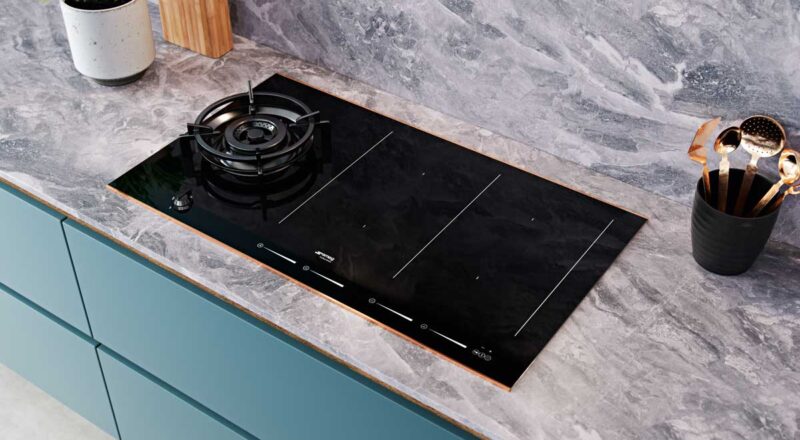When it comes to creating a perfect kitchen, choosing cast iron for your induction setup can be a game-changer. With the rise in popularity of induction cooktops, many people are curious about the compatibility and benefits of using cast iron with these modern stoves. In this article, we’ll explore why cast iron is a fantastic choice for induction cooking and how it can enhance your culinary experience.

Understanding Induction Cooking
Before delving into why cast iron is an excellent choice, it’s essential to understand how induction cooking works. Unlike traditional gas or electric stoves, induction cooktops use electromagnetic fields to directly heat the cookware, offering precise and efficient cooking.
How Does Induction Work?
Induction cooktops generate heat by creating a magnetic field between the cooktop and the cookware. This method requires cookware to have a magnetic base, which is why not all pots and pans are suitable for induction cooking.
Why Choose Cast Iron?
Cast iron is renowned for its durability and ability to retain heat. These characteristics make it a popular choice among chefs and home cooks alike. But why is it particularly beneficial for induction cooking?
Magnetic Properties
Cast iron is naturally magnetic, making it highly compatible with induction cooktops. This ensures efficient heat transfer, allowing for even cooking and excellent results.
Heat Retention
One of the standout features of cast iron is its superior heat retention. This quality is especially advantageous when cooking on induction, as it maintains a consistent temperature, reducing the need for frequent adjustments.
Benefits of Using Cast Iron on Induction
Using cast iron on an induction cooktop offers several benefits that enhance both the cooking process and the quality of the food.
Even Heating
The combination of cast iron’s heat retention and induction’s precise heating results in evenly cooked meals. This is perfect for dishes that require consistent temperatures, such as searing steaks or simmering sauces.
Durability and Longevity
Cast iron cookware is incredibly durable and can last a lifetime with proper care. This makes it a worthwhile investment for any kitchen.
Versatility
Cast iron can seamlessly transition from stovetop to oven, offering versatility in cooking methods and allowing for a wide range of recipes.
Potential Drawbacks
While cast iron is an excellent choice for induction cooking, it’s important to consider some potential drawbacks.
Weight
Cast iron cookware is heavy, which can be cumbersome for some users, especially when moving pots and pans around the kitchen.
Maintenance
Proper care is essential to maintain cast iron’s non-stick surface and prevent rusting. Regular seasoning is necessary to keep it in optimal condition. For more tips on seasoning, you can visit cast iron seasoning.
Choosing the Right Cast Iron Cookware
Not all cast iron cookware is created equal. When selecting pieces for your induction setup, consider the following factors:
Size and Shape
Choose cookware that fits well on your induction cooktop and suits your cooking needs. Larger pieces are great for family meals, while smaller ones are ideal for individual servings.
Quality
Invest in high-quality cast iron from reputable brands to ensure durability and performance. Quality pieces are more likely to have a smooth surface and better heat distribution.
Expert Opinions
Many experts agree that cast iron is an excellent choice for induction cooking. It offers both performance and versatility, making it a favorite among professional chefs. For more insights, check out what the experts say about cast iron on induction.
Conclusion
In conclusion, choosing cast iron for your induction setup is a smart decision that brings numerous benefits to your kitchen experience. Its compatibility, durability, and versatility make it a valuable addition to any culinary arsenal.

FAQs
Can all cast iron cookware be used on induction cooktops?
Yes, most cast iron cookware is suitable for induction cooktops due to its magnetic properties. However, it’s always best to check the manufacturer’s guidelines.
Is cast iron better than stainless steel for induction cooking?
Both materials have their advantages. Cast iron offers excellent heat retention, while stainless steel heats quickly and is lighter. The choice depends on individual cooking preferences.
How do I maintain my cast iron cookware?
Regular cleaning and seasoning are key to maintaining cast iron. Avoid using harsh detergents, and ensure the cookware is thoroughly dried to prevent rusting. For more tips, visit cast iron maintenance.
This article contains affiliate links. We may earn a commission at no extra cost to you.

